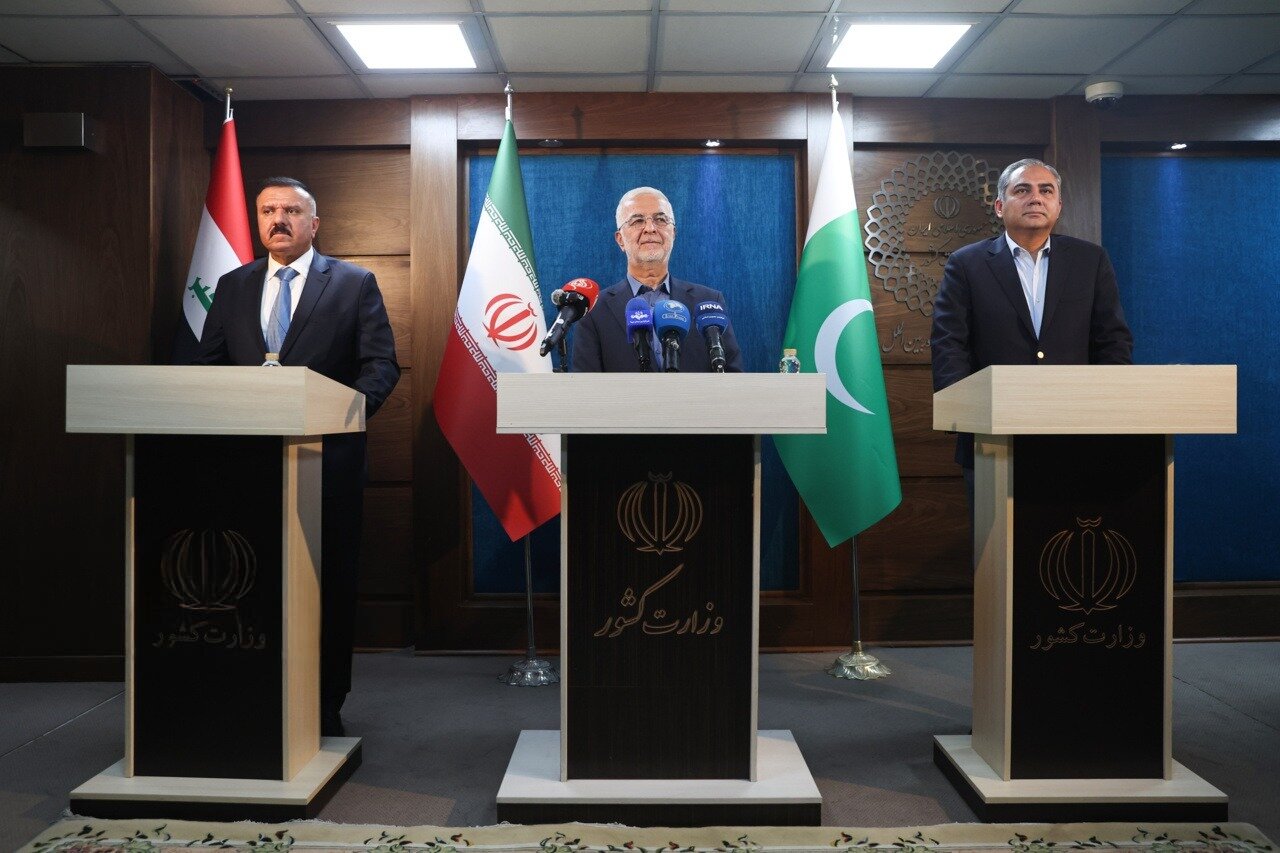Iran, Iraq, Pakistan unite for Arbaeen amid regional solidarity against Israeli aggression

TEHRAN – The interior ministers of Iran, Iraq, and Pakistan convened in Tehran on Monday for a trilateral summit focused on coordinating security and logistical measures for the upcoming Arbaeen pilgrimage.
The meeting, held at the Prophet Mohammad Hall of Iran’s Interior Ministry, underscored the spiritual significance of Arbaeen while positioning it as a platform for regional cooperation against shared security threats, particularly condemning recent Israeli attacks on Iran.
Arbaeen, commemorating Imam Hussein’s martyrdom on the 40th day after Ashura, is the world’s largest annual pilgrimage.
Each year, millions of Shia believers trek the 80-kilometre Najaf–Karbala route in a faith-driven, transnational movement that embodies Islamic unity, solidarity, and the enduring call for justice.
Its vast scale demands deep cross-border cooperation—leveraging security and hospitality, and logistical support between friendly countries—to ensure a safe and magnificent observance.
Iranian Interior Minister Eskandar Momeni opened the Tehran summit by praising technical committees from all three nations for their preparatory work, stating, "Today’s final agreement reflects our shared will to ensure Arbaeen is held securely, magnificently, and in an organized manner."
The ministers signed a joint protocol committing to enhanced consular, border, and transportation coordination, with Momeni emphasizing that pilgrims’ dignity and safety were paramount.
He further elevated the partnership to a "strategic level," citing Iraq’s role as host, Pakistan’s massive pilgrim contingent, and Iran’s bridging position.
Minister Momeni linked the Arbaeen collaboration to broader regional solidarity, condemning the Israeli regime’s 12-day war of aggression against Iran that killed civilians and military commanders.
He thanked Iraq and Pakistan for their "firm stances" supporting Iran’s "legitimate and victorious self-defense," adding that such unity "demonstrates political cohesion against common threats."
Minister Momeni concluded by stressing that "pilgrim security and regional stability are inseparable," achievable only through "sincere cooperation."
Iraqi Interior Minister Abdul Amir al-Shammari detailed readiness efforts, noting, "Under Prime Minister Sudani’s directives, service and logistical facilities are fully prepared."
He highlighted Iraq’s hosting of over 5 million foreign pilgrims last year—3 million from Iran alone—and urged Pakistan to manage its citizens’ return flows.
Al-Shammari called for reactivating a trilateral technical committee: "We need joint field efforts during the pilgrimage itself."
Pakistani Interior Minister Mohsin Naqvi echoed this, congratulating Iran on its "triumph against the Zionist regime."
Naqvi also delivered a message from Pakistan’s Prime Minister and Army Chief to Ali Akbar Velayati, a senior advisor to the Leader of the Islamic Revolution, Ayatollah Seyyed Ali Khamenei.
"Pakistan recognized Iran’s right to self-defense," Naqvi affirmed, "Our people and government stood shoulder-to-shoulder with our Iranian brothers."
In a parallel diplomatic push, President Masoud Pezeshkian met Ministers al-Shammari and Naqvi separately.
The Iranian president warned that the "Zionist regime seeks to divide Muslims," urging Islamic leaders to neutralize this through unity.
Leave a Comment